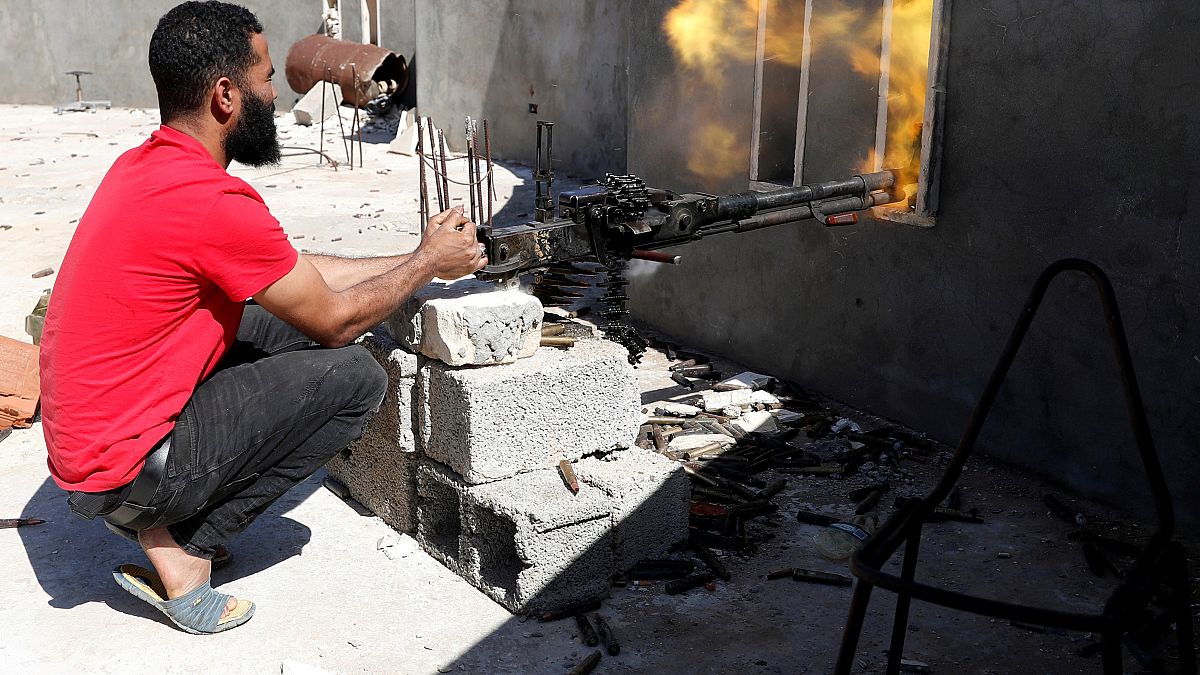Putting unstable Libya in charge of managing Europe-seeking migrants is like "a sick doctor being asked to treat patients".
Putting unstable Libya in charge of managing Europe-seeking migrants is like "a sick doctor being asked to treat patients".
That was the claim of the country's interior minister, Fathi Bashagha, during an interview with Euronews' Anelise Borges.
"Libya has internal problems," he said. "Since the state fell apart Libya has not been able to provide adequate services even for Libyans.
"The EU demands Libya secures the coast, fights human traffickers, cares and pays for illegal migrants in accordance with international standards... you know Libya has many other problems, service problems, security problems, terrorism problems, economic problems."
Sliding towards full-scale civil war
In recent weeks fighting has intensified in Libya, the "gateway" for many migrants prepared to risk their lives to cross the Mediterranean to Europe.
Hundreds of people have been killed as head of the Libyan National Army (LNA) Khalifa Haftar launched an offensive to seize Tripoli, the nation's capital.
During this time, migration flows through the country are still a major cause for concern. During a lull in the fighting earlier this month, the Libyan coastguard detained more than 100 people attempting to reach Europe.
EU-Libya migration deal
Due to a deal signed between the European Union and Libya in 2017, all migrants caught trying to reach Europe on the Mediterranean Sea are placed in detention centres.
In December 2018 a damning UN report found that migrants detained in Libya were subject to violence, forced labour, and even gang rape.
Rights workers on the ground have confirmed that similar abuses are happening in these detention centres today.
How did Libya get to this stage?
Bashagha told Euronews the task that the EU had given Libya was massive for a country that has known nothing but conflict for the past eight years.
Since the ousting of Gadaffi in 2011, it has seen political fragmentation. The rise of militias grappling for power has rendered sufficient provision for its citizens untenable.
It is estimated that one-third of the Libyan population live on or below the poverty line.
Libya, says Bashagha, is a "sick doctor that is being asked to treat patients". It was not even able to provide services for Libyans, let alone migrants.
"If Europe is not happy with the work it [Libya] is doing it should take over and do it itself," said Euronews' Borges.
What's happening at the moment?
Currently, the UN-backed Government of National Accord, led by Prime Minister Fayez al-Serraj, is holding Tripoli.
Haftar's LNA however, is allied to the elected House of Representatives, which is based in the eastern cities of Tobruk and Al-Bayda.
Several other militias, however, are active in the south of the country.
This week marks the seventh week since Haftar's offensive to seize the capital. Rival militias are currently fighting with "non-stop shelling" heard from the front line.
A high number of casualties have been reported on both sides.
Both the UN and EU have called for both parties to initiate an "immediate ceasefire". The Government of National Accord, however, has announced that is ready for a "massive military offensive" with Haftar calling on government forces to join his LNA.
As it stands, said Borges, there is "no end in sight" for this conflict.
